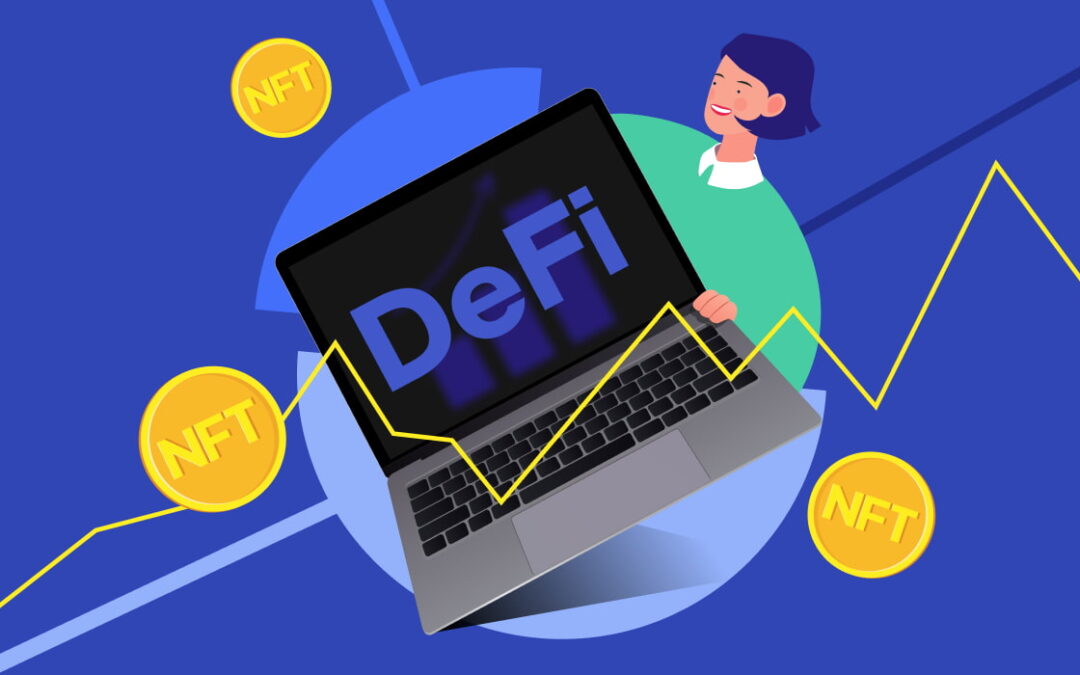In today’s ever-evolving digital age, there’s a groundbreaking innovation that’s set to reshape the entire financial ecosystem as we know it: Decentralized Finance, or DeFi. This revolutionary concept leverages blockchain technology to provide a decentralized alternative to traditional financial services, offering greater accessibility, transparency, and efficiency. Join me as we delve into the transformative potential of DeFi and explore how it’s poised to change the financial world forever.
The Rise of DeFi
DeFi represents a paradigm shift in the way we approach financial services. Unlike traditional banking systems that rely on centralized institutions to facilitate transactions, DeFi platforms operate on decentralized networks, enabling peer-to-peer transactions without the need for intermediaries. This not only eliminates costly fees and delays associated with traditional banking but also empowers individuals to have greater control over their finances.
Enhanced Accessibility
One of the most significant advantages of DeFi is its unparalleled accessibility. Traditional financial services often exclude large segments of the global population, particularly those in underbanked or unbanked regions. DeFi platforms, however, are accessible to anyone with an internet connection, enabling individuals worldwide to access a wide range of financial services such as lending, borrowing, trading, and more.
Transparency and Security
Transparency and security are paramount in the world of finance, and DeFi excels in both areas. Built on blockchain technology, DeFi platforms offer unparalleled transparency by recording all transactions on a public ledger that is immutable and transparent. This not only reduces the risk of fraud and manipulation but also enhances trust among users.
Furthermore, DeFi protocols utilize smart contracts, which are self-executing contracts with the terms of the agreement directly written into code. These smart contracts automate the execution of transactions, eliminating the need for intermediaries and reducing the risk of human error or manipulation.
Financial Inclusion
Perhaps one of the most compelling aspects of DeFi is its potential to promote financial inclusion on a global scale. By providing access to essential financial services without the need for traditional banking infrastructure, DeFi empowers individuals in underserved communities to participate in the global economy and access opportunities for wealth creation.
Moreover, DeFi opens up avenues for microfinance and peer-to-peer lending, allowing individuals to borrow and lend funds directly without the need for a centralized intermediary. This not only reduces barriers to entry but also fosters a more inclusive financial ecosystem where individuals can access capital to pursue entrepreneurial ventures or meet urgent financial needs.
The Future of Finance
As we look ahead, it’s clear that DeFi is poised to revolutionize the financial world in ways we’ve never imagined. From enhanced accessibility and transparency to promoting financial inclusion on a global scale, DeFi represents a seismic shift in the way we think about and interact with finance.
However, it’s essential to acknowledge that DeFi is still in its infancy, and challenges such as regulatory uncertainty and scalability issues remain. Nevertheless, the potential benefits far outweigh the challenges, and as the DeFi ecosystem continues to evolve and mature, we can expect to see even greater innovations that will shape the future of finance for generations to come.
Conclusion
In conclusion, DeFi holds the promise of transforming the financial landscape as we know it, offering unparalleled accessibility, transparency, and inclusivity. As we embrace this new era of decentralized finance, it’s crucial to remain informed and engaged, recognizing the transformative potential of DeFi while also navigating the challenges that lie ahead. Together, we can harness the power of DeFi to build a more inclusive and equitable financial system that empowers individuals worldwide.

